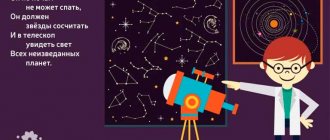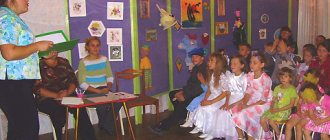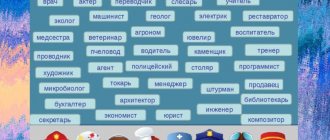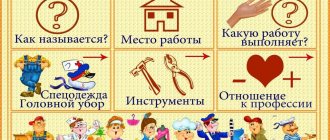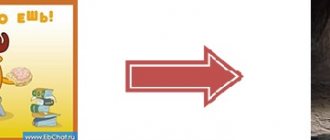Project “School for Parents. We are together!"
Municipal autonomous educational institution
"Chemical-technological school "SinTez"" Perm
Project “School for Parents”.
Leaders:
Mantsigonyan Angela Ravilyevna – primary school teacher of the MAOU Chemical-Technological School “SinTez”, Perm, Perm Territory
Participants:
Teachers, parents and students of primary school.
Deadlines:
September 2021 – May 2021
Formulation of the problem
The tasks facing the education system today increase the responsibility of parents for the effectiveness of the educational process in educational institutions, since it is the parent community that is directly interested in improving the quality of education and development of their children.
Our school conducted a survey of 87 parents and 134 children, which revealed that the most preferred activity of parents with their children is watching television programs with adult content, even non-educational ones. The established fact states a lack of cognitive information for children. Some parents (37%) have the opportunity to pay attention to the cognitive activity and development of their child’s intellectual abilities at least once or twice a week, 28% - only on weekends, 7% - daily, 4% - during vacation and only 4% of respondents indicated that they did not have such an opportunity at all.
The main reasons preventing parents from paying attention to education and the development of learning motivation in children are:
— lack of time due to high professional employment – 51%,
— lack of special knowledge, skills and abilities in pedagogy – 32%;
— 23% of parents believe that their child already receives enough information at school;
— 21% – indicate an insufficient level of their development and education;
- 15% - admitted their own inertia;
- 6% of parents noted that they did not see the point in this.
In such a situation, it is possible to increase the degree of parental activity only under the condition of continuous organized interaction between the educational institution and the family.
A contradiction has emerged
between the desire of parents to have a smart, educated and developed child and the lack of time, lack of special knowledge, skills and abilities for the formation of cognitive activity in primary school children.
Project goals:
Creation of psychological and pedagogical conditions for testing and implementing an effective model of interaction between parents and educational institutions for the development of intellectual and cognitive abilities and increasing motivation for the educational process among students.
Tasks
:
Organize interaction between teacher - parents - students to develop skills of educational independence and development of cognitive activity of younger schoolchildren through the involvement of the family in the educational process of the school institution and joint activities in extracurricular activities.
Child-parent projects as a modern form of interaction between kindergarten and family
Organizing full interaction between teachers and parents is one of the important tasks facing the teams of preschool institutions. In order for parents to become active assistants to teachers, it is necessary to involve them in the life of the kindergarten. One form of cooperation is project activity.
The peculiarity of the parent-child project is that children, parents, and teachers take part in the project. Joint collection of materials, production of attributes, games, competitions, presentations reveal the creative abilities of children, involve parents in the educational process, which naturally affects the results. Parents, participating in the implementation of the project, are not only sources of information, real help and support for the child and teacher in the process of working on the project, but also become direct participants in the educational process, enrich their teaching experience, experience a sense of ownership and satisfaction from their successes and the achievements of the child . As you know, every preschooler by nature is an inquisitive Pochemuchka, a little explorer, therefore “the best discovery is the one that the child makes himself.” The idea for the “Little Gardener” project came to us after conducting an educational lesson about vegetables. One warm spring day a package arrived at our group. It contained cucumber seeds, and my kids immediately wanted to grow a “rich” harvest. The children and I got down to business. After carefully examining them, they sowed the seeds. The children took care of it with pleasure: they watered it with warm, settled water, rejoiced at the appearance of the first green sprouts, and watched the growth of plants and the ripening of fruits. The result of our work was a small harvest of cucumbers. Our parents watched our efforts and rejoiced with us. Egor G., together with his mother, created the “Cucumber” project, in which they posted information about this culture: the homeland of the cucumber, health benefits, various ways of eating, etc. Children and parents took part in a competition of crafts made from cucumbers.
By implementing the project method, we cultivate an independent and responsible personality, and develop the child’s mental and creative abilities. Family creative projects broaden the horizons of children and adults, fill them with creative energy, and help build relationships and cooperation between family and kindergarten. Thanks to the project method, I was able to achieve positive results in including parents in joint activities for the development of children.
All the children in our group and their parents took part in the implementation of the project “Tomsk - a beloved city”. Looking at books about Tomsk, the children became interested in the monuments, customs, and culture of their native land. They and their parents were asked to collect monument figurines, books, and sets of postcards. Parents and children joined in the work with interest. As part of the project, brochures with information about the city and little books were prepared, which presented poems, drawings, and stories about Tomsk. The children, together with their parents, drew the coat of arms of their family and made an album with photographs on the theme “I love my city.” Vlad K.’s family put together a project “I’m getting to know my city,” where the whole family took excursions around the city, learned the history of Tomsk, visited memorable places, cathedrals, exhibitions, museums, etc. The result of our work was the opening of a mini-museum in the group : “Tomsk is my favorite city.”
I believe that using the project method in working with students helps to increase the child’s self-esteem. By participating in the project, the child feels significant in a group of peers, sees his contribution to the common cause, and rejoices in his successes. The project method promotes the development of favorable interpersonal relationships in a group of children. The results of our cooperation with parents, I believe, are the following:
— creation of a child-adult community;
— accumulation of materials on the interaction of preschool educational institutions with families;
— providing parents with assistance in creating a developmental environment;
- active participation of parents at matinees and open events.
The famous scientist A. Einstein said: “Children themselves love to search, to find themselves. This is their strength. They always feel like flowerbeds and never tire of being amazed at the numerous wonders of living life. Perhaps the most difficult thing is to teach them to understand other people, who are not always like you, to know the depth of everyone. We often overload children with books and impressions, and do not help them select the most important things that lead to the depths of their own thoughts and creativity. Children, like plants, need much more freedom, the opportunity to know themselves.
Freedom and the opportunity to know oneself, in my opinion, are provided by design technology, which allows a child not to feel the “pressure” of adults. One of the advantages of design technology is that each child is recognized as important and necessary in the team. He sees the results of efforts at the beginning of the group, and then the entire team. The child understands that other participants in the process notice his contribution to the common cause, and therefore strives to keep up with his peers. The result of work for preschoolers can be a drawing, a craft, an album, a book, a written fairy tale, a performance...
The main function of design is to outline a program and select means for further targeted actions. Design technology begins with focusing on the current problem of the preschooler. The design process consists of three stages: development of projects, their implementation, analysis of results.
Project activities have a number of characteristics that have a positive impact on the development of a preschool child. First of all, during project activities, knowledge about the world around us expands. This is primarily due to the implementation of research and creative projects. In addition, children’s general abilities develop - cognitive, communicative, regulatory.
The child turns out to be interesting to the parents because he puts forward various ideas and discovers new things in already familiar situations. The life of the child and parents is filled with rich content.
Literature:
1. Evdokimova E. Project as motivation for knowledge. Preschool education. 2003. No. 3. Theoretical article about the project method in preschool educational institutions.
2. Project method in the activities of a preschool institution. Authors and compilers: L. S. Kiseleva,
3. Merkulova T.V. Dubinina E.A. Project activities in kindergarten: science and pedagogical practice. Moscow. School Press. 2010
4. Tebeneva T. N. Project culture as part of the professionalism of teachers of preschool educational institutions
